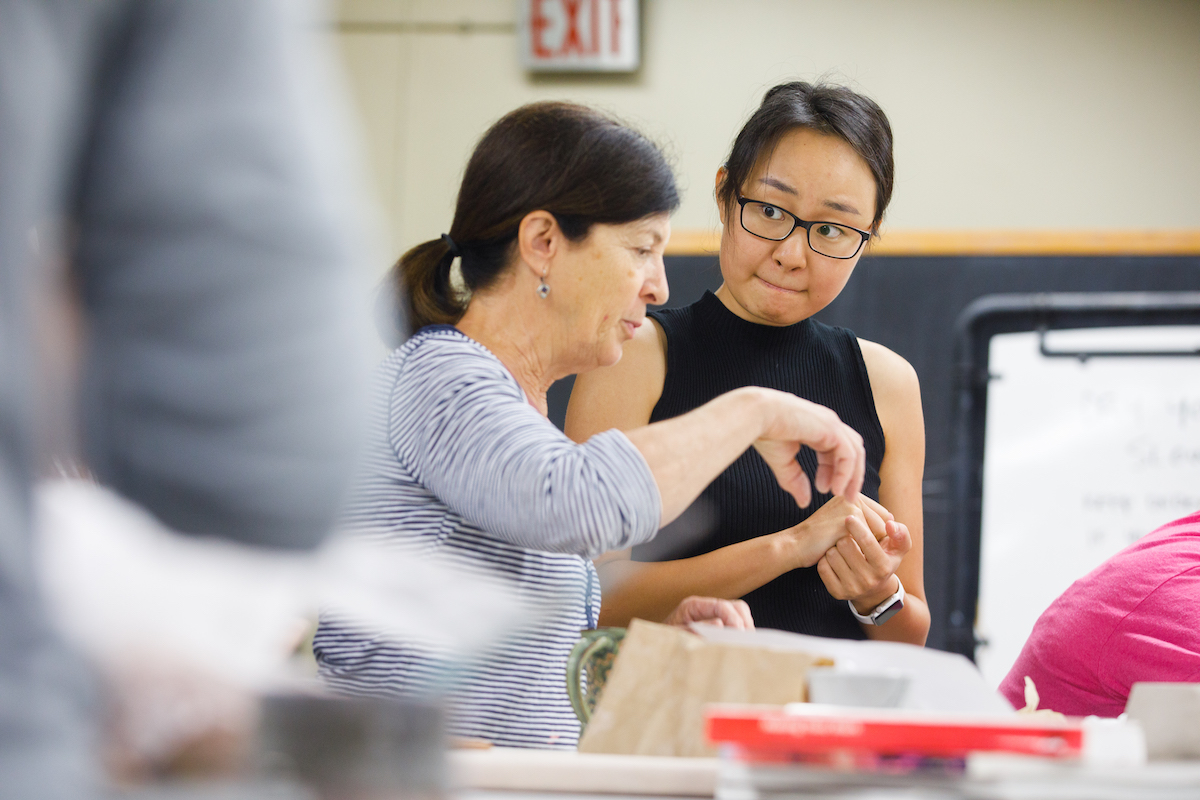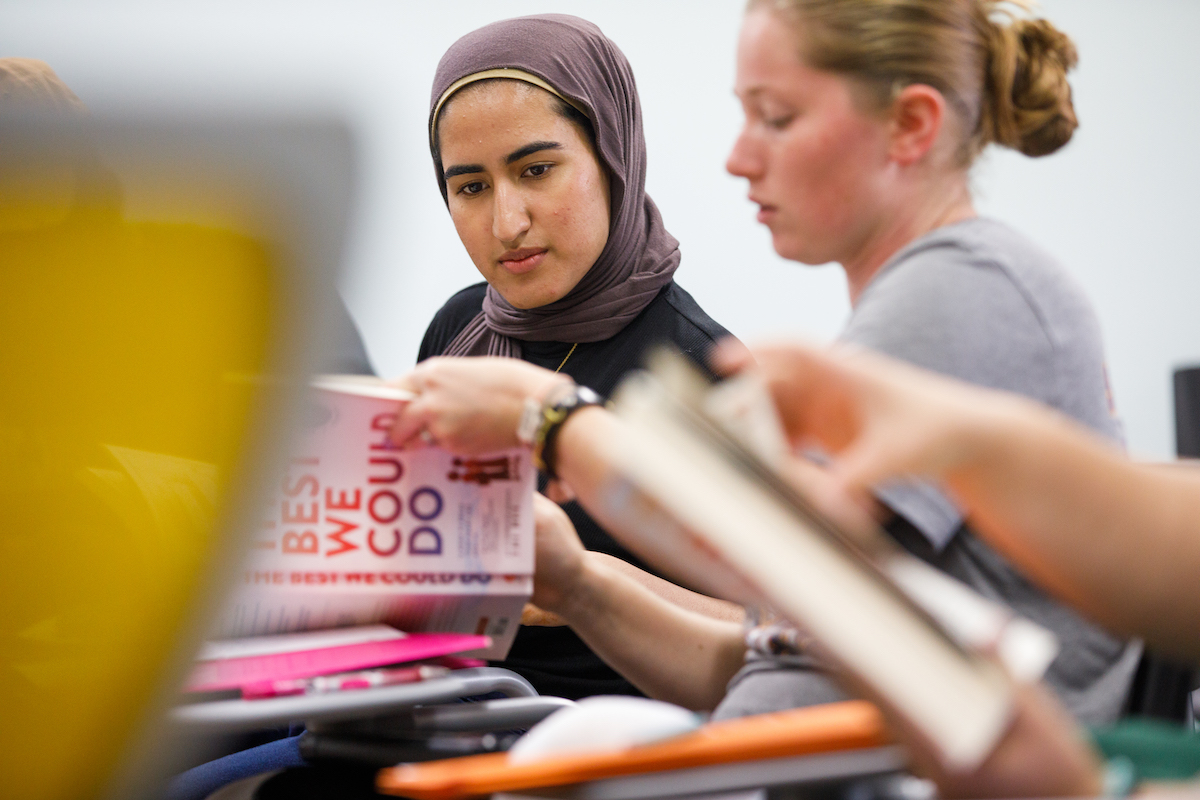History Major and Minor
How have people lived throughout different times and in different places? How did their choices shape our world, and what can we learn from them? As a history major or minor, you’ll ask questions like these. You’ll develop skills as a critical thinker, analyst and communicator as you learn to connect past to present.
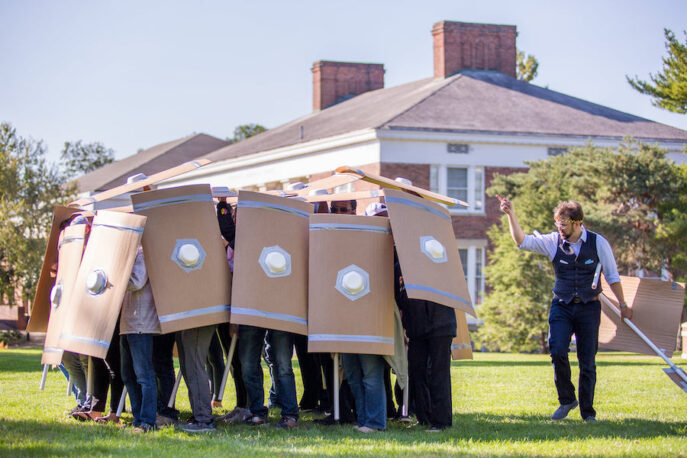
Why Study History at Albion?
As a history student at Albion, you’ll examine many cultures and time periods while maintaining the freedom to choose what interests you most. Our courses take you around the world—Europe, Latin America, East Asia, Africa and the United States—as well as through the centuries—from 3000 BCE to the 21st century.
As part of our curriculum, you’ll do things like examine ancient Greek and Roman military maneuvers. Discover historical photography with museum-grade vintage cameras from 1950s Germany and Japan. Learn about the American Revolution through role-playing games. Internships, research at leading museums and archives and off-campus experiences allow you to apply your classroom-acquired knowledge to the real world.
What Will You Learn as a History Major?
You’ll build a broad knowledge base, taking courses in American, European and Asian or Latin American History, as well as a number of special topics. You might look at global conflicts from multiple perspectives or study concepts of race and gender throughout history.
You’ll develop highly translatable skills, like the ability to see an issue from multiple perspectives. You’ll practice challenging conventional wisdom and communicating ideas effectively through writing and speaking.
You’ll tailor your curriculum to your interests and goals. You might pursue advanced coursework in a specific region, complete thesis work, or even find courses in other departments—like foreign languages—that complement your history studies.
Teacher Certification with a History Major
Interested in teaching? Pair your History major (or minor) with an Education Concentration to be eligible for your Michigan Department of Education teaching certificate.
Highlights
Scholarships

We award a number of scholarships and prizes to outstanding history majors each year, from sophomores to graduating seniors. We’re also one of only nine colleges nationally, and the only one in the Midwest, to participate in the national Gilder Lehrman Institute of American History Scholarship. Winners will receive a $5,000 award each year for four years to students who declare history as their major at the time of admission and continue with it.
Study Away Opportunities
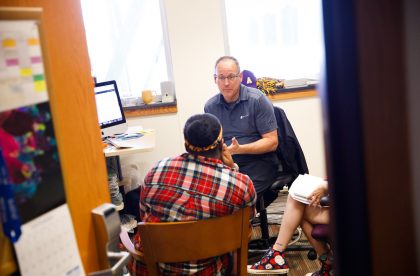
Study history through hands-on research and ground-level engagements with people, places, and repositories around the world. History students have participated in research and on-site learning experiences at the Library of Congress, the Newberry Library in Chicago, the University of Aberdeen, Poland (through the Holocaust Studies Service-Learning Project), and the National Chengchi University in Taiwan.
Research
As a history major, you’ll have ample opportunity and inspiration to participate in the Foundation for Undergraduate Research, Scholarship, and Creative Activity (FURSCA). As a participant in FURSCA, you’ll submit a research proposal and, if accepted, you’ll be matched with a faculty mentor to help you execute your project.
Senior Thesis
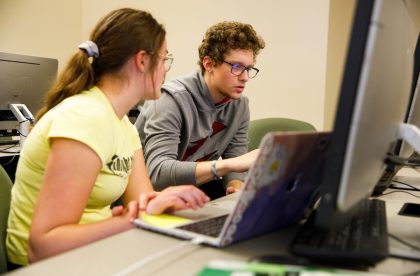
You’ll have the opportunity to complete a thesis examining a topic of your choosing with guidance from our faculty members. We recommend this if you’re interested in pursuing graduate school in history, law, or political science, among other fields. The writing and analysis skills will also benefit you in a host of interdisciplinary careers.
Careers & Outcomes
Studies in history will equip you with valuable skills in critical thinking and writing, effective argumentation, and analysis of diverse changes over time that translate to nearly any industry. Our graduates go on to work in fields such as education, public service, forecasting, and journalism. Some pursue graduate studies in history, law, public policy, and many other disciplines.
Job Titles
- Archivist
- Attorney General
- Editor
- Forest Archaeologist
- High School Principal
- Physician
- Judicial Law Clerk
Employers
- Center on Global Energy Policy at Columbia University
- Library of Congress
- Marine Corps University Press
- Michigan Department of Natural Resources
- Michigan Supreme Court
- The Walt Disney Company

